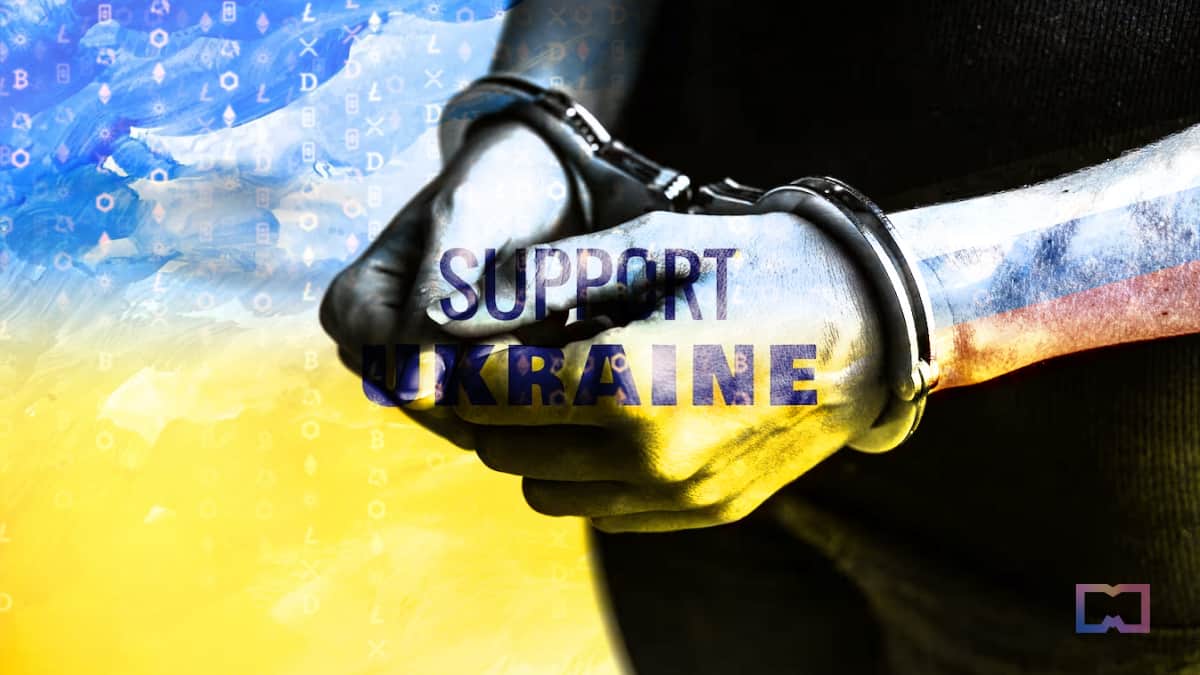Russian Security Service Arrests Citizen for Using Crypto to Aid Ukrainian War Efforts


In Brief
Russia’s Federal Security Service has reportedly detained a Far Eastern Khabarovsk Region resident for allegedly funding Ukrainian forces via cryptocurrency transfers.
The detainee allegedly used personal funds and transferred them via crypto to third parties residing in the territory of Ukraine.
The article provides several pieces of advice on how to remain anonymous when transferring crypto.

Russia’s Federal Security Service has reportedly detained a Far Eastern Khabarovsk Region resident for allegedly funding Ukrainian forces via cryptocurrency transfers.
The news was reported on June 21 by the Russian news agency TASS. According to the article, the individual is suspected of having funded the Ukrainian military via cryptocurrency transactions. The detainee allegedly used personal funds and transferred them via crypto to third parties residing in the territory of Ukraine. The funds went to a Ukraine-used foreign charitable foundation focusing on acquiring drones, ammunition, infrared thermal rifle scopes, and medical equipment.
“[The FSB has] curtailed the unlawful activity of a resident of Sovetsko-Gavansky District, Khabarovsk Region, [who is] implicated in the commission of high treason stemming from the provision of financial aid to the Ukrainian armed forces in activities aimed at undermining the security of the Russian Federation,” told the FSB Public Relations Center to TASS.
At this point, it is unclear if the Federal Security Service tracked the citizen’s cryptocurrency transactions and how it managed to do it.
How to remain anonymous when transferring crypto
This case shows how crucial anonymity can be when making transactions, even in crypto. Here are several pieces of advice on how to remain anonymous when making cryptocurrency transactions:
- Use VPN when signing transactions. However, keep in mind that several applications like Infura can trace your IP address.
- Delete all cookies from your browser, and don’t accept cookies. You can also switch to a more privacy-focused browser that automatically blocks cookies for you. Use tracker blockers like Privacy Badger to keep yourself secure and opt out of tracking.
- When sending or receiving crypto, use non-custodial wallets like Ledger’s cryptocurrency hardware wallets Nano X or Nano S Plus. Trezor also offers two hardware wallet models.
- When transferring funds, do not top-up non-custodial wallets via centralized cryptocurrency exchanges, such as Binance or Coinbase, as centralized exchanges have KYC processes in place, meaning they collect user data and can share it with authorities in case of investigations.
- You can also purchase cryptocurrencies from cryptocurrency exchanges that do not require KYC, for example, KuCoin and CoinEx.
- To make transactions anonymously, use a new wallet address for every transaction. Don’t transfer funds to an address that was previously publicly exposed. It is also better not to use the exposed address.
- Use mixers like Unijoin and Mixero to send funds. Remember not to withdraw funds immediately but wait a longer period, not to withdraw large sums at once, and factor in time zone when using the service.
Read related posts:
Disclaimer
In line with the Trust Project guidelines, please note that the information provided on this page is not intended to be and should not be interpreted as legal, tax, investment, financial, or any other form of advice. It is important to only invest what you can afford to lose and to seek independent financial advice if you have any doubts. For further information, we suggest referring to the terms and conditions as well as the help and support pages provided by the issuer or advertiser. MetaversePost is committed to accurate, unbiased reporting, but market conditions are subject to change without notice.
About The Author
Valeria is a reporter for Metaverse Post. She focuses on fundraises, AI, metaverse, digital fashion, NFTs, and everything web3-related. Valeria has a Master’s degree in Public Communications and is getting her second Major in International Business Management. She dedicates her free time to photography and fashion styling. At the age of 13, Valeria created her first fashion-focused blog, which developed her passion for journalism and style. She is based in northern Italy and often works remotely from different European cities. You can contact her at valerygoncharenko@mpost.io
More articles

Valeria is a reporter for Metaverse Post. She focuses on fundraises, AI, metaverse, digital fashion, NFTs, and everything web3-related. Valeria has a Master’s degree in Public Communications and is getting her second Major in International Business Management. She dedicates her free time to photography and fashion styling. At the age of 13, Valeria created her first fashion-focused blog, which developed her passion for journalism and style. She is based in northern Italy and often works remotely from different European cities. You can contact her at valerygoncharenko@mpost.io






















































